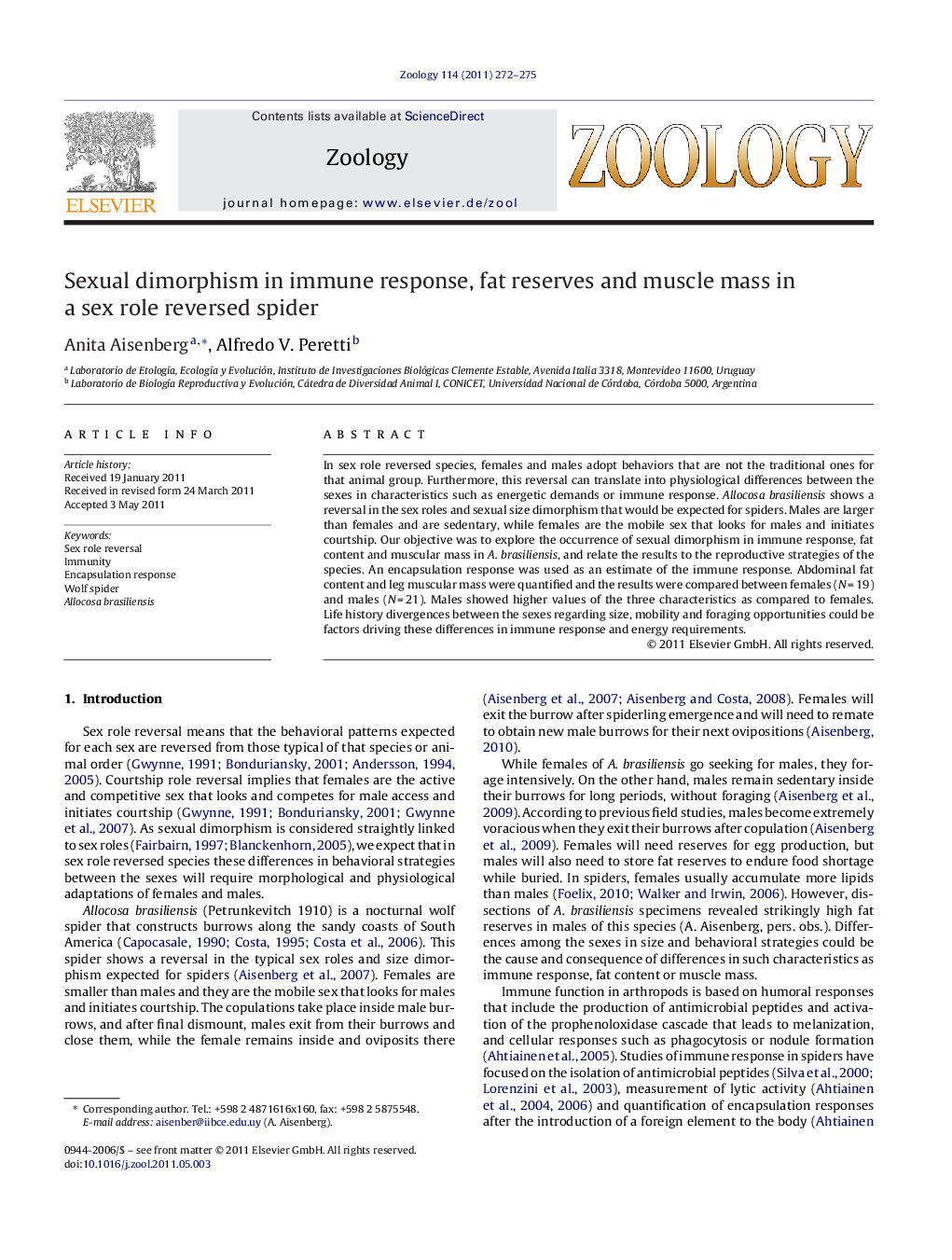| Article ID | Journal | Published Year | Pages | File Type |
|---|---|---|---|---|
| 2791237 | Zoology | 2011 | 4 Pages |
In sex role reversed species, females and males adopt behaviors that are not the traditional ones for that animal group. Furthermore, this reversal can translate into physiological differences between the sexes in characteristics such as energetic demands or immune response. Allocosa brasiliensis shows a reversal in the sex roles and sexual size dimorphism that would be expected for spiders. Males are larger than females and are sedentary, while females are the mobile sex that looks for males and initiates courtship. Our objective was to explore the occurrence of sexual dimorphism in immune response, fat content and muscular mass in A. brasiliensis, and relate the results to the reproductive strategies of the species. An encapsulation response was used as an estimate of the immune response. Abdominal fat content and leg muscular mass were quantified and the results were compared between females (N = 19) and males (N = 21). Males showed higher values of the three characteristics as compared to females. Life history divergences between the sexes regarding size, mobility and foraging opportunities could be factors driving these differences in immune response and energy requirements.
